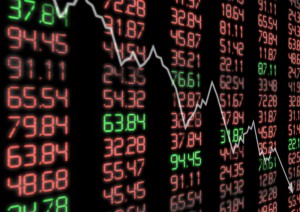 The investment fraud lawyers of Gana Weinstein LLP are examining multiple customer disputes filed with the Financial Industry Regulatory Authority (FINRA) against broker David Silberg (Silberg). According to BrokerCheck, Silberg has a multitude of disclosures concerning: churning, excessive trading, unauthorized trading, unsuitability, and breach of fiduciary duty. His BrokerCheck records also show 2 disclosures concerning an employment separation after allegations.
The investment fraud lawyers of Gana Weinstein LLP are examining multiple customer disputes filed with the Financial Industry Regulatory Authority (FINRA) against broker David Silberg (Silberg). According to BrokerCheck, Silberg has a multitude of disclosures concerning: churning, excessive trading, unauthorized trading, unsuitability, and breach of fiduciary duty. His BrokerCheck records also show 2 disclosures concerning an employment separation after allegations.
The most recent customer complaint filed against Silberg occured in August 2016. The customer alleged that Silberg made unsuitable recommendations to the client’s account. Additionally, the broker allegedly misrepresented and omitted material facts regarding an investment in a corporate debt security. The alleged damages were worth $100,000 and the case was settled for $29,750.00.
In November 2009, another customer complaint was filed against Silberg alleging that during his employment at Gunnallen Financial, the broker failed to supervise, engaged in unauthorized trading, and made unsuitable investments to their account. The alleged damages were worth $375,000 and the case was settled for $50,000.
Silberg entered the industry in 1989. He is currently registered and employed at Aegis Capital since February 2010. His past employment includes:
• Gunnallen Financial, Inc. (May 2006 – March 2010)
• Great Eastern Securities, Inc. (November 2004 – May 2006)
• Kirlin Securities, Inc. (April 2003 – December 2003)
• Maxim Group LLC (October 2003 – December 2004)
• Investec Ernst & Company (September 2002 – October 2002)
• Kirlin Securities Inc. (November 2000 – September 2002)
• Northeast Securities, Inc. (November 1999 – November 2000)
• Triad Financial Inc. (July 1998 – July 1999)
• NYLife Securities Inc. (June 1996 – March 1998)
• John Hancock Distributions Inc. (September 1989-March 1996)
Brokers have a responsibility treat investors fairly which includes obligations such as making only suitable investments for the client. In order to make a suitable recommendation the broker must meet certain requirements. Advisors are also not allowed to engage in unauthorized trading. Such trading occurs when a broker sells securities without the prior authority from the investor. All brokers are under an obligation to first discuss trades with the investor before executing them under NYSE Rule 408(a) and FINRA Rules 2510(b). These rules explicitly prohibit brokers from making discretionary trades in a customers’ non-discretionary accounts. The SEC has also found that unauthorized trading to be fraudulent nature because no disclosure could be more important to an investor than to be made aware that a trade will take place.
The number of complaints against Silberg are unusual compared to his peers. According to newsources, only about 7.3% of financial advisors have any type of disclosure event on their records among brokers employed from 2005 to 2015. Brokers must publicly disclose reportable events on their CRD customer complaints, IRS tax liens, judgments, investigations, and even criminal matters. However, studies have found that there are fraud hotspots such as certain parts of California, New York or Florida, where the rates of disclosure can reach 18% or higher. Moreover, according to the New York Times, BrokerCheck may be becoming increasing inaccurate and understate broker misconduct as studies have shown that 96.9% of broker requests to clean their records of complaints are granted.
Gana Weinstein LLP’s securities fraud attorneys represent investors who have suffered securities losses due to the mishandling of their accounts due to claims of fraud and negligence. The majority of these claims may be brought in securities arbitration before FINRA. Our consultations are free of charge and the firm is only compensated if you recover.
 Securities Lawyers Blog
Securities Lawyers Blog

